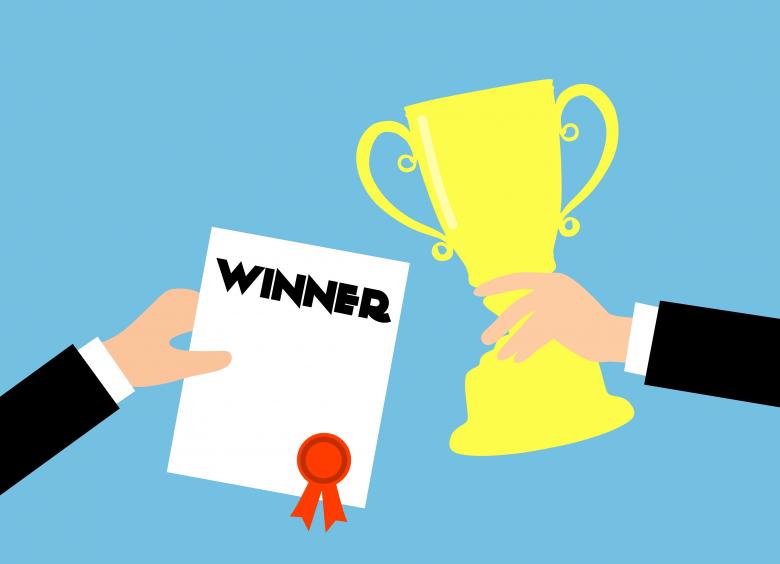As organizations strive to create a positive and productive work environment, recognizing and rewarding employees for their contributions is a key strategy. In this blog, we will explore the importance of employee rewards and recognition, the benefits they bring to organizations, and practical ideas for implementing effective rewards and recognition programs. Discover how these programs can boost employee morale, engagement, and performance, and contribute to a thriving organizational culture. Join us as we delve into the world of employee rewards and recognition!
Contents
What Are Employee Rewards?
 Employee rewards are incentives or perks provided by employers to recognize and appreciate the contributions of their employees. These can include monetary bonuses, promotions, recognition programs, flexible work arrangements, employee discounts, and other non-monetary benefits such as additional time off, wellness programs, or professional development opportunities. Employee rewards are designed to motivate and retain employees, boost morale, and create a positive work environment that fosters employee engagement and loyalty.
Employee rewards are incentives or perks provided by employers to recognize and appreciate the contributions of their employees. These can include monetary bonuses, promotions, recognition programs, flexible work arrangements, employee discounts, and other non-monetary benefits such as additional time off, wellness programs, or professional development opportunities. Employee rewards are designed to motivate and retain employees, boost morale, and create a positive work environment that fosters employee engagement and loyalty.
Ideas To Offer Employee Rewards And Recognition
Here are some ideas for employee rewards and recognition:
Monetary bonuses
In addition to cash bonuses or gift cards, consider offering performance-based bonuses tied to specific goals or targets, such as achieving sales targets, meeting project deadlines, or exceeding customer satisfaction scores. This can provide employees with a clear incentive to perform at their best and directly reward their achievements.
Promotion or career advancement
Instead of just offering promotions based on seniority or tenure, consider promoting employees who consistently demonstrate exceptional skills, leadership, and dedication to their work. Providing opportunities for career advancement and growth can motivate employees to continue striving for excellence and contribute to the organization’s success.
An employee of the month/quarter/year
 Implement a formal recognition program that highlights and celebrates outstanding employees regularly. This can include featuring their achievements on the company’s intranet or bulletin board, announcing their accomplishments in a company-wide email or newsletter, or hosting a special ceremony to recognize their contributions. Consider providing a certificate, plaque, or trophy as a tangible token of appreciation.
Implement a formal recognition program that highlights and celebrates outstanding employees regularly. This can include featuring their achievements on the company’s intranet or bulletin board, announcing their accomplishments in a company-wide email or newsletter, or hosting a special ceremony to recognize their contributions. Consider providing a certificate, plaque, or trophy as a tangible token of appreciation.
Flexible work arrangements
Offer flexibility in work arrangements, such as allowing employees to have flexible work hours, work remotely, or work compressed work weeks. This can provide employees with greater control over their work-life balance, which can contribute to their job satisfaction and loyalty to the organization.
Recognition events or ceremonies
Plan special events or ceremonies to recognize and celebrate employees’ achievements. This can include an annual awards banquet, a team-building outing, or a themed recognition event. Providing a memorable and enjoyable experience can make employees feel valued and appreciated.
Professional development opportunities
Invest in the growth and development of employees by providing opportunities for training, workshops, conferences, or certifications. This not only enhances their skills and knowledge but also shows that the organization values their professional growth and is committed to their career advancement.
Employee wellness programs
Implement wellness programs that promote physical, mental, and emotional well-being among employees. This can include offering gym memberships, yoga or meditation classes, mental health resources, or Employee Assistance Programs (EAPs). Supporting employees’ well-being can improve their job satisfaction, productivity, and overall health.
Employee discounts
Establish partnerships with local businesses or vendors to offer special discounts or perks to employees on company products or services. This can include discounted gym memberships, tickets to local attractions, or exclusive deals on products or services. Employee discounts can be a tangible way to show appreciation and provide additional benefits to employees.
Personalized notes or thank-you cards
Take the time to write personalized notes or thank-you cards to acknowledge employees’ efforts and express gratitude for their contributions. Use specific examples to highlight their achievements and show genuine appreciation for their hard work. Personalized recognition can make employees feel valued and motivated to continue their good work.
Tips To Plan Employee Rewards And Recognition
 Planning employee rewards and recognition programs involves careful consideration of the organization’s goals, culture, and employee preferences. Here are some steps to help you plan employee rewards and recognition effectively:
Planning employee rewards and recognition programs involves careful consideration of the organization’s goals, culture, and employee preferences. Here are some steps to help you plan employee rewards and recognition effectively:
- Define the objectives: Clearly define the objectives of your employee rewards and recognition program. What are you trying to achieve? Is it to motivate employees, boost morale, improve retention, or promote a positive work culture? Understanding the goals of your program will help you tailor your efforts accordingly.
- Know your employees: Understand your employees’ preferences, needs, and expectations when it comes to rewards and recognition. Conduct surveys or focus groups to gather feedback and insights on what types of rewards and recognition are most meaningful to them.
- Establish criteria: Develop clear criteria and guidelines for determining who is eligible for rewards and recognition. This could include performance metrics, milestones, or specific achievements that align with the organization’s goals and values.
- Create a budget: Set a budget for your rewards and recognition program. Consider both monetary and non-monetary rewards and determine how much you can allocate for each category. Be mindful of your organization’s financial resources and constraints.
- Choose diverse rewards: Offer a variety of rewards that cater to different employee preferences. This could include monetary bonuses, promotions, time off, professional development opportunities, wellness programs, or other perks. Consider both short-term and long-term rewards to keep employees motivated over time.
- Recognize frequently: Recognize employees frequently and consistently. Consider regular recognition programs such as “Employee of the Month” or “Spotlight Awards” to ensure ongoing recognition of outstanding performance.
Remember that employee rewards and recognition should be meaningful, timely, and aligned with your organization’s values and culture.
Why Are Employee Rewards Important For Organizations?
 Employee rewards are important for organizations for several reasons:
Employee rewards are important for organizations for several reasons:
- Employee motivation and engagement: Employee rewards, such as bonuses, promotions, and recognition, can serve as powerful motivators that encourage employees to perform at their best and go the extra mile. Recognizing and rewarding employees for their hard work and achievements can boost their motivation, engagement, and commitment to their job and the organization.
- Retention and loyalty: Organizations invest time and resources in hiring and training employees, and retaining top talent is critical to their success. Employee rewards can help improve employee retention and loyalty by recognizing and appreciating their contributions, which can foster a sense of loyalty and commitment to the organization. Employees who feel valued and appreciated are more likely to stay with the organization long-term.
- Positive work culture: Employee rewards can contribute to creating a positive work culture where employees feel appreciated, recognized, and valued. This can lead to increased job satisfaction, higher morale, and a more cohesive and collaborative team environment. A positive work culture can also attract and retain top talent, as it is often considered a desirable aspect of an organization’s employment brand.
- Increased productivity and performance: When employees are recognized and rewarded for their efforts, it can inspire them to perform better and achieve higher levels of productivity and performance. Employees who feel appreciated are more likely to take pride in their work, demonstrate a sense of ownership, and strive for excellence, which can lead to improved organizational performance and results.
- Enhanced employee relations: Employee rewards can strengthen the relationship between employees and the organization, as well as between employees and their managers. Recognizing and rewarding employees can help build trust, improve communication, and create a positive relationship between employees and their managers, leading to increased employee satisfaction and engagement.
Conclusion
In conclusion, employee rewards and recognition programs are crucial for organizations as they promote employee motivation, engagement, retention, and performance. These programs contribute to a positive work culture, foster team spirit, and enhance employee relations. By investing in well-designed rewards and recognition programs, organizations can cultivate a motivated, engaged, and loyal workforce, leading to improved organizational results and success in the long run. So, if you are a human resource manager or professional looking for support and guidance to plan rewards or incentives through wellness programs at your workplace, seek help today!
Employee wellness programs are the key to improving employee motivation, productivity, and retention. At MantraCare, we have a team of health experts, counselors, and coaches who serve corporate employees with 10+ wellbeing programs including EAP, Employee Diabetes Reversal, Corporate MSK, Employee Fitness, Corporate Yoga, and Employee meditation.
